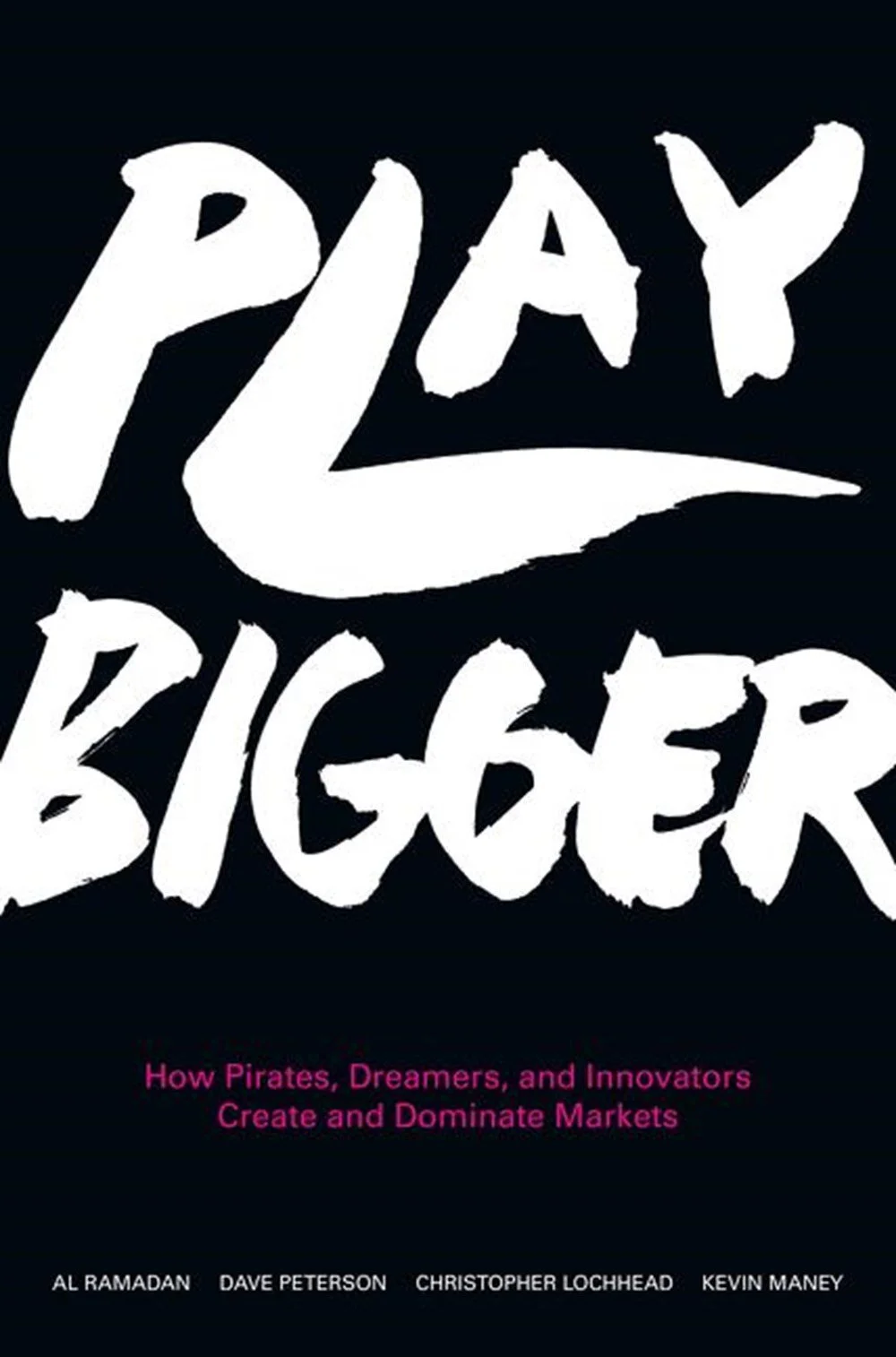As a part of our continued commitment to providing the best resources for leaders to better themselves and thrive, for our June Reading List, we recommend these books: Metronomics: One United System to Grow Up Your Team, Company, and Life by Shannon Susko Play Bigger: How Pirates, Dreamers, and Innovators Create and Dominate Markets by Al Ramadan, Dave Peterson, Christopher Lochhead, & Kevin Maney, and A Better Life for Their Children: Julius Rosenwald, Booker T. Washington, and the 4,978 Schools That Changed America by Andrew Feiler (Author), John Lewis (Foreword), Jeanne Cyriaque (Contributor), Brent Leggs (Contributor).
Metronomics: One United System to Grow Up Your Team, Company, and Life - Shannon Susko
As a business leader, you’ve read dozens of books by the top thought leaders, learning from their research, principles, and tools. Each book dives deep into a specific area of expertise—strategy, execution, cash, people, culture, and leadership. All share powerful concepts on what to do to grow your business. But how do you efficiently unite these tools into a regimen that works for not just one specific area of your business, but for your entire team, company, and life?
Metronomics unites top business thought leadership with over twenty years of proven practical experience. The outcome is a prescriptive progressive growth system for every business. In this book, you’ll learn how to build a high-performing business team that achieves superior results with ease, speed, and confidence. You’ll learn the practical progression that ensures your team is fiercely connected to your strategic execution system. No matter what level you and your team are at right now, Metronomics will meet you where you are—and grow with you to the next level and beyond.
The best-kept business secret for the past twenty years, Metronomics will allow your company to win your business Olympics every year, and as a leader, it will set you free.
Play Bigger: How Pirates, Dreamers, and Innovators Create and Dominate Markets - Al Ramadan, Dave Peterson, Christopher Lochhead, & Kevin Maney
The founders of a respected Silicon Valley advisory firm study legendary category-creating companies and reveal a groundbreaking discipline called category design.
Winning today isn’t about beating the competition at the old game. It’s about inventing a whole new game—defining a new market category, developing it, and dominating it over time. You can’t build a legendary company without building a legendary category. If you think that having the best product is all it takes to win, you’re going to lose.
In this farsighted, pioneering guide, the founders of Silicon Valley advisory firm Play Bigger rely on data analysis and interviews to understand the inner workings of “category kings”— companies such as Amazon, Salesforce, Uber, and IKEA—that give us new ways of living, thinking or doing business, often solving problems we didn’t know we had.
In Play Bigger, the authors assemble their findings to introduce the new discipline of category design. By applying category design, companies can create new demand where none existed, conditioning customers’ brains so they change their expectations and buying habits. While this discipline defines the tech industry, it applies to every kind of industry and even to personal careers.
Crossing the Chasm revolutionized how we think about new products in an existing market. The Innovator’s Dilemma taught us about disrupting an aging market. Now, Play Bigger is transforming business once again, showing us how to create the market itself.
A Better Life for Their Children: Julius Rosenwald, Booker T. Washington, and the 4,978 Schools That Changed America - Andrew Feiler (Author), John Lewis (Foreword), Jeanne Cyriaque (Contributor), Brent Leggs (Contributor)
A Sarah Mills Hodge Fund publication
Born to Jewish immigrants, Julius Rosenwald rose to lead Sears, Roebuck & Company and turn it into the world’s largest retailer. Born into slavery, Booker T. Washington became the founding principal of Tuskegee Institute. In 1912 the two men launched an ambitious program to partner with black communities across the segregated South to build public schools for African American children. This watershed moment in the history of philanthropy―one of the earliest collaborations between Jews and African Americans―drove dramatic improvement in African American educational attainment and fostered the generation who became the leaders and foot soldiers of the civil rights movement.
Of the original 4,978 Rosenwald schools built between 1917 and 1937 across fifteen southern and border states, only about 500 survive. While some have been repurposed and a handful remain active schools, many remain unrestored and at risk of collapse. To tell this story visually, Andrew Feiler drove more than twenty-five thousand miles, photographed 105 schools, and interviewed dozens of former students, teachers, preservationists, and community leaders in all fifteen of the program states.
A Better Life for their Children includes eighty-five duotone images that capture interiors and exteriors, schools restored and yet-to-be restored, and portraits of people with unique, compelling connections to these schools. Brief narratives written by Feiler accompany each photograph, telling the stories of Rosenwald schools’ connections to the Trail of Tears, the Great Migration, the Tuskegee Airmen, Brown v. Board of Education, embezzlement, murder, and more.
Beyond the photographic documentation, A Better Life for Their Children includes essays from three prominent voices. Congressman John Lewis, who attended a Rosenwald school in Alabama, provides an introduction; preservationist Jeanne Cyriaque has penned a history of the Rosenwald program; and Brent Leggs, director of African American Cultural Heritage at the National Trust for Historic Preservation, has written a plea for preservation that serves as an afterword.




